 Mona Ali in Phenomenal World:
Mona Ali in Phenomenal World:
The centerpiece of shock and awe of the West’s economic response to Russia’s invasion and bombardment of Ukraine was the freezing of Russia’s central bank assets. In the March 7 edition of his Global Money Dispatch newsletter, the Credit Suisse investment strategist Zoltan Pozsar writes that the G7 seizure of Russia’s foreign exchange reserves marks a regime change in the global monetary system. Pozsar pronounces this new regime Bretton Woods III. He anticipates that Asian sovereigns, fearing that their dollar- and euro-denominated foreign reserves are at risk of expropriation in the event of future foreign policy disputes, will park their surplus funds outside of the reach of Western financial authorities. For Pozsar, this heralds the rise of “commodity-backed currencies in the East” and spells the denouement of dollar hegemony.
In a follow-up piece published on March 31, Pozsar speculates that recent developments will drive China to replace the West as the buyer of last resort of Russian oil. As a result, oil tankers will have to be rerouted from the quicker East-West route via the Suez to a longer passage (one requiring ship transfers) from Russia to China. Geopolitics will shape the reorganization of real infrastructure networks, slowing down supply chains and increasing the cost of credit. Pozsar predicts that this rearrangement of global commodity and money flows presage a new world economic order, one in which China will replace the US as the monetary hegemon. The petrodollar, he envisages, will be replaced by the petro-yuan.
Pozsar’s analysis—as well as Adam Tooze’s response to it—appreciates the asymmetry in the world economy: between advanced economies that dominate global finance, and developing countries that produce the majority (about sixty percent) of world GDP. Asia may be the center of gravity of world manufacturing, but European and North American firms still command the bulk of the profits embedded in global supply chains.
More here.

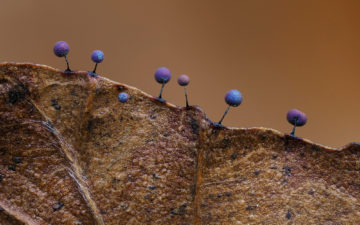 Gunnar O Babcock in Aeon:
Gunnar O Babcock in Aeon: Gary Younge in The Nation:
Gary Younge in The Nation: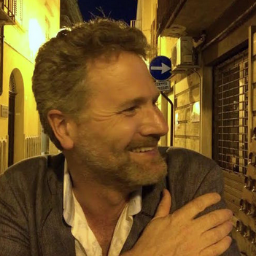 Adam Tooze over at his substack Chartbook:
Adam Tooze over at his substack Chartbook: A
A 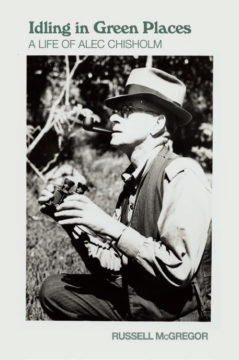 Natural history is deeply rooted in, and benefits from, connections between the personal and the scientific. There is a blog called ‘
Natural history is deeply rooted in, and benefits from, connections between the personal and the scientific. There is a blog called ‘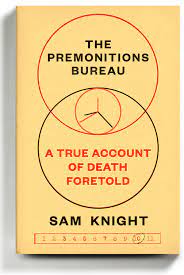 Gabriel García Márquez would not sleep in a house if someone had died in it. Colette was passionate about dowsing. James Merrill had his Ouija board. Ted Hughes taught Sylvia Plath to read horoscopes. Robert Graves believed in ghosts. If Edmund Wilson had a dream about you, he’d call you to mull it over.
Gabriel García Márquez would not sleep in a house if someone had died in it. Colette was passionate about dowsing. James Merrill had his Ouija board. Ted Hughes taught Sylvia Plath to read horoscopes. Robert Graves believed in ghosts. If Edmund Wilson had a dream about you, he’d call you to mull it over. The Queen is the only royal who actually matters or does anything. That’s not fair, of course, but the monarchy is unfairness personified and glorified, long to reign over us. Naturally, the rest of the Royal Family—the heirs; the spares; Princess Michael of Kent, whose father was in the S.S. and whom Diana nicknamed the Führer; Princess Anne, Charles’s younger sister, who’s known to feed the chickens in a ballgown and Wellington boots after a night at the palace—are all busy. They have numberless engagements and causes, which fill their identical, repeating years, but they exist only as heralds for the magical authority of the Crown, which resides in the Queen and nobody else. “They are high-born scaffolding,” as Tina Brown, a former editor of The New Yorker, writes in “
The Queen is the only royal who actually matters or does anything. That’s not fair, of course, but the monarchy is unfairness personified and glorified, long to reign over us. Naturally, the rest of the Royal Family—the heirs; the spares; Princess Michael of Kent, whose father was in the S.S. and whom Diana nicknamed the Führer; Princess Anne, Charles’s younger sister, who’s known to feed the chickens in a ballgown and Wellington boots after a night at the palace—are all busy. They have numberless engagements and causes, which fill their identical, repeating years, but they exist only as heralds for the magical authority of the Crown, which resides in the Queen and nobody else. “They are high-born scaffolding,” as Tina Brown, a former editor of The New Yorker, writes in “ Let’s start with something everyone agrees on: the world’s fertility rate has declined. Whether you’re in a low-, middle-, or high-income country, with few exceptions the “total fertility rate”—the number of children per woman—
Let’s start with something everyone agrees on: the world’s fertility rate has declined. Whether you’re in a low-, middle-, or high-income country, with few exceptions the “total fertility rate”—the number of children per woman—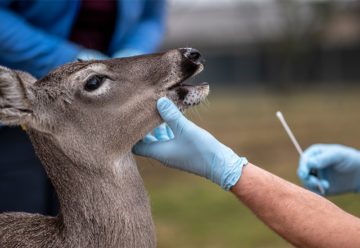 Researchers have worked with hunters for decades as part of regular wildlife surveillance to manage deer populations and track the spread of infectious diseases, such as chronic wasting disease and bovine tuberculosis. But these days, the scientists are also looking for the virus that causes COVID-19 in humans.
Researchers have worked with hunters for decades as part of regular wildlife surveillance to manage deer populations and track the spread of infectious diseases, such as chronic wasting disease and bovine tuberculosis. But these days, the scientists are also looking for the virus that causes COVID-19 in humans.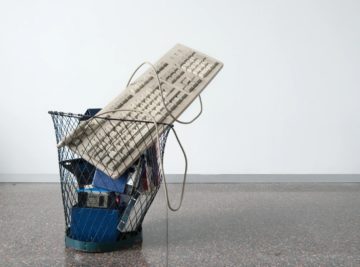 I have no special love for the SAT. Aside from the fact that my test came back with a big, red, “NO HARVARD FOR YOU, DUMMY” stamped on it, it always seemed a bit arbitrary. After all: Why should my eligibility for college depend on knowing words like “nefarious” and “egregious”? That seems…there must be a better word for this…crappy. We know that SAT scores correlate with household income, and evidence suggests that studying
I have no special love for the SAT. Aside from the fact that my test came back with a big, red, “NO HARVARD FOR YOU, DUMMY” stamped on it, it always seemed a bit arbitrary. After all: Why should my eligibility for college depend on knowing words like “nefarious” and “egregious”? That seems…there must be a better word for this…crappy. We know that SAT scores correlate with household income, and evidence suggests that studying  Like German author Judith Schalansky, I like paying attention to maps. They are time-stamps, relics and quantifiable measure, and, generally, works of art. Unlike Schalansky though, who wrote an entire
Like German author Judith Schalansky, I like paying attention to maps. They are time-stamps, relics and quantifiable measure, and, generally, works of art. Unlike Schalansky though, who wrote an entire 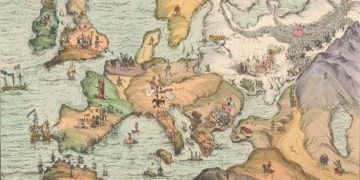 In 1816 an American lawyer named J.F. Dumoulin wrote
In 1816 an American lawyer named J.F. Dumoulin wrote  Lockdown was, among other things, a sudden collective experiment in volume control. Sound waves from the regular rush-hour thrum of cities usually penetrate more than a kilometre below the Earth’s surface. When Covid-19 forced humans inside,
Lockdown was, among other things, a sudden collective experiment in volume control. Sound waves from the regular rush-hour thrum of cities usually penetrate more than a kilometre below the Earth’s surface. When Covid-19 forced humans inside,  Vaccines to prevent certain types of cancer already exist. They target viruses: hepatitis B virus, which can trigger liver cancer, and human papillomavirus, which causes cervical and some other cancers. But most cancers are not caused by viruses. The Lynch vaccine trial will be one of the first clinical tests of a vaccine to prevent nonviral cancers.
Vaccines to prevent certain types of cancer already exist. They target viruses: hepatitis B virus, which can trigger liver cancer, and human papillomavirus, which causes cervical and some other cancers. But most cancers are not caused by viruses. The Lynch vaccine trial will be one of the first clinical tests of a vaccine to prevent nonviral cancers.